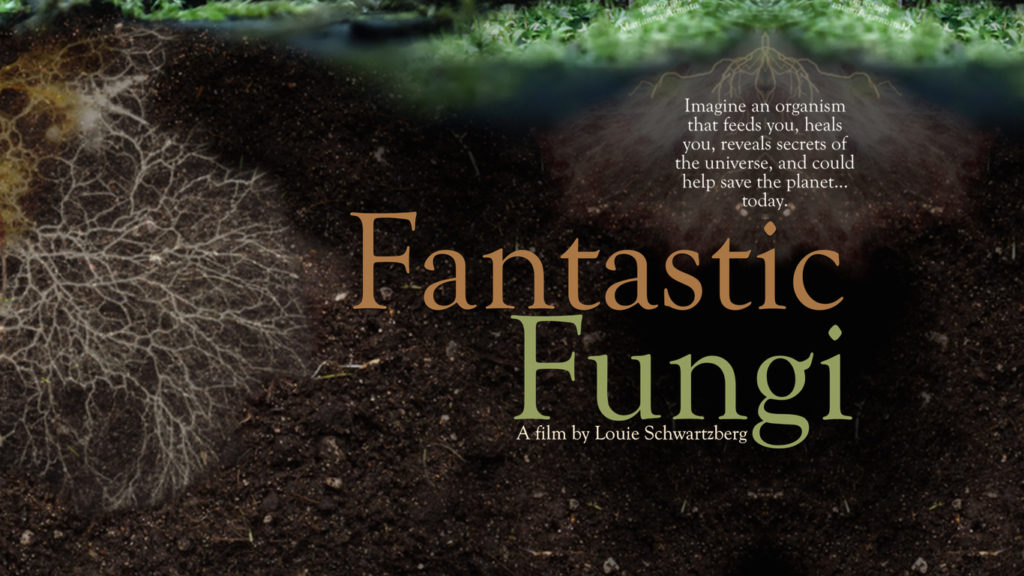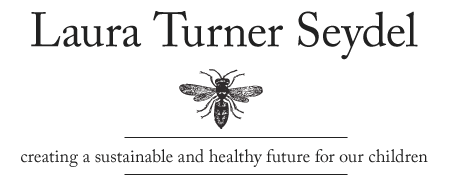I’ve seen countless documentaries over the years, but these ten films stuck with me. I want to share these with you because I believe education is the key to create lasting change.
How do we bring our collective vision of a thriving, sustainable future? These films touch on regenerative farming practices and other solutions we can learn from nature.
1. The Biggest Little Farm (2018)
He’s a filmmaker, she’s a gourmet chef. Together, John and Molly Chester, with their dog Todd, move to Moorpark, California, and begin their new lives as farmers. The problem is, they know zilch about farming, and the entity that owned Apricot Lane Farms before them only grew one crop and left the land ravaged by overuse.
Enter Alan York: sustainable farming guru. Alan had the crazy idea to make Apricot Lane as diverse as it could possibly be. And it worked. Molly and John learn that nature has the innate ability to self-govern. No chemicals needed.
Where to Watch: Amazon, Youtube, Hulu, AppleTV
Directed by: John Chester
Runtime: 92 min
Read this interview with Director John Chester
Trailer
”The story of The Biggest Little Farm may be a niche, but it has the power to inform and inspire similar wellsprings of progressive innovation and change.” –Medium
2. Soil Carbon Cowboys (2014)
This film is inspiring because I’ve seen it in action. For those of you who don’t know, my dad raises bison on some of his ranches, and we ensure the bison are pastured in a way that promotes the health of the soil and the bison themselves.
Peter Byck, Prof. at Arizona State University’s School of Sustainability and Cronkite School of Journalism, brings you the first installment of a ten-part docuseries about regenerative grazing practices. Through rotational grazing, ranchers are able to build up their soil and engage in carbon sequestration. Healthy soil means increased erosion resistance, improved moisture retention, healthier herds, and reduced overhead, all while increasing the productivity of the land. This short film follows 3 ranchers across North America along their journey to healthier soil, healthier livestock, and a healthier planet.
Where to Watch: Vimeo
Directed by: Peter Byck
Runtime: 12 min
Trailer
“It’s a powerful story of how nature works — get the soils healthy, and the whole system rocks.”- Greenbiz
3. Fantastic Fungi (2019)

A unique and captivating film, Fantastic Fungi takes you on an educational journey led by world-renowned mycologist Paul Stamets and other experts like Michael Pollan who unearth the often-overlooked network of fungi that can heal us and save our world.
Their conversations explore the unlimited potential of fungi in the fields of food, medicine, expanding consciousness, bioremediation, neurogenesis, and treating end-of-life anxiety. From noted documentary producers Lyn and Norman Lear and pioneer of time-lapse cinematography Louie Schwartzberg.
Where to Watch: http://watch.fantasticfungi.com/
Directed by: Louie Schwartzberg
Runtime: 81 min
Watch Q&A With Louie Shwartzberg and Paul Stamets
Trailer
“Fantastic Fungi is never uninteresting, and often startling in the natural beauty it reveals.” – Wall Street Journal
In the face of corporate malfeasance, Big Polluters push for personal responsibility of the consumer. These films rail against this false narrative and instead pushes for producer responsibility
4. The Story of Plastic (2019)
Following the supply chain that begins with fracked natural gas in the United States and ends with literal mountains of plastic waste on the other side of the world, plastic is exposed to be a dead-end, life-or-death issue for people who find their waterways and wildlife endangered by the scourge of this commodity.
Where to Watch: Available to rent on Amazon, AppleTV
Directed by: Deia Schlosberg
Runtime: 95 min
Trailer
“[The Story of Plastic]’s message isn’t for us to ditch straws — the problem is far too systematic for that. Rather it’s a call for producer responsibility.” –The Revelator
5. Generation Zapped (2017)
This film is especially important to me because I have developed a sensitivity to EMF (Electromagnetic Frequencies), and I want to prevent others from going through what I have gone through as a result of exposure to Wireless Radiation. As she observed her three children spending more and more time on wireless devices, director Sabine El Gemayel became concerned about the possibility of health risks associated with Wireless Radiation.
Through interviews with experts in the scientific and public health communities as well as people who suffer from high sensitivity to Wireless Radiation, the film suggests ways to reduce exposure while also calling out industries that rely on a lack of oversight. For example, the industry plans to erect some 800,000 new cell towers in the coming years despite health guidelines from the FCC that have not been updated in 25 years.
Where to Watch: Available to rent on Vimeo, Amazon, AppleTV
Directed by: Sabine El Gemayel
Runtime: 74 min
Trailer
“A compelling wake up call about the health risks of our wireless world.”
-Ken Cook, President, Environmental Working Group (EWG)
6. The Devil We Know (2018)
This film is based on a 2016 New York Times article entitled “The Lawyer Who Became DuPont’s Worst Nightmare” and premiered at Sundance. Wilbur Tennant, a local farmer from Parkersburg, West Virginia, noticed his cattle began acting strangely and appearing unhealthy shortly after his brother sold 66 acres to DuPont who held their headquarters in Parkersburg.
Rob Bilott, a corporate defense attorney who switched sides to take on Tennant’s case, had little to go on except Tennant’s suspicion. Bilott discovered DuPont had been polluting the water near Tennant’s farm with PFOA, knowing it was toxic. Because of his work, there is a growing movement around the regulation of some 60,000 chemicals. Bilott is still prosecuting DuPont to this day, with about 3500 cases left to go.
Where to Watch: Amazon, Netflix, AppleTV, Youtube
Directed by: Stephanie Soechtig and Jeremy Seifert
Runtime: 88 min
Trailer
“The Devil We Know” is a riveting tale of long-term irresponsibility and injustice…Soechtig presents an unusually engrossing docu for this type of subject, with human interest always in the forefront.” –Variety
7. Dark Waters (2019)
Mark Ruffalo plays Rob Bilott, a corporate defense attorney who takes DuPont. After a farmer from Parkersburg, West Virginia insists the company’s irresponsible disposal of toxic chemical PFOA is responsible for the decimation of his cattle, Bilott investigates his claims and exposes a lengthy history of pollution. The Devil We Know is the inspiration for Dark Waters, Mark Ruffalo’s passion project.
Where to Watch: Amazon, AppleTV, Youtube
Directed by: Todd Haynes
Runtime: 126 min
Trailer
“Dark Waters is Mr. Ruffalo’s film, both in its gestation and execution, and his passion has been well served.” – Wall Street Journal
Democracy works only if voters are well informed. But what happens when subversive influences enter the equation? These films help to answer that question.
8. The Great Hack (2019)
Cambridge Analytica is the most influential company you had never heard of until the Facebook fallout of 2018. This Netflix Original premiered at Sundance last year and follows the bombshell as it unfolds. Former Cambridge Analytica employees, Christopher Wylie and Brittany Kaiser, Prof. David Carroll, journalist Carole Cadwalladr all weigh in on the problematic commoditization of personal data and what it means for Democracy.
Where to Watch: Netflix
Directed by: Karim Amer and Jehane Noujaim
Runtime: 113 min
Trailer
”[The Great Hack] is sure to be a controversial documentary, not just because it sees Brexit and the GOP Presidential campaign involvement with Cambridge Analytica as a sinister, almost military-grade level of psychological warfare against an unsuspecting public, but because it also highlights how large groups of people can easily be led to vote against their own interests.” –RogerEbert.com
9. Dark Money (2018)
Montana has some of the strongest campaign finance laws in the country. Some might find this surprising, but Montanans saw first hand what can happen when corporate interests are allowed to take root in politics when 10,000 snow geese died when they sought refuge in a flooded former open-pit copper mine.
Over 100 years prior, the state of Montana passed a law that banned corporations from spending money on political campaigns. This statute was necessary because the “copper kings” had been buying politicians’ loyalty to ensure they would face no obstacles in their exploitation of Montana’s natural resources.
The film premiered at Sundance in 2018 examines the influence of untraceable corporate money on our elections, politicians, and the legacy of Citizens United.
Where to Watch: Amazon, Youtube, iTunes
Directed by: Kimberly Reed
Runtime: 98 min
Trailer
”Reed’s sophomore feature is straightforward reportage, telling a complex, multi-issue story with a large number of players, in admirably cogent terms”- Variety
10. Where’s My Roy Cohn?
The film’s title is reportedly a quote from President Donald Trump as he expressed frustration at Attorney General Jeff Sessions’s recusal from the Mueller investigation. The film premiered at Sundance last year and features footage from Roy Cohn’s own personal archive.
Director Matt Tyrnauer portrays Cohn as the ultimate power broker of his time. From chief counsel to Sen. McCarthy during the Rosenburg trial to representing Donald Trump in amid allegations Trump’s corporation violated the Fair Housing Act, Cohn is shown to be the quintessential “fixer” for high profile individuals, and as being emblematic of everything that’s wrong with politics, class disparity, and the overall toxic political environment.
Where to Watch: Amazon, AppleTV, Starz, Youtube
Directed by: Matt Tyrnauer
Runtime: 97 min
Trailer
“Where’s My Roy Cohn? offers a visceral reminder that a sense of history matters, perhaps especially in our own brawling, encamped time.” –NPR
